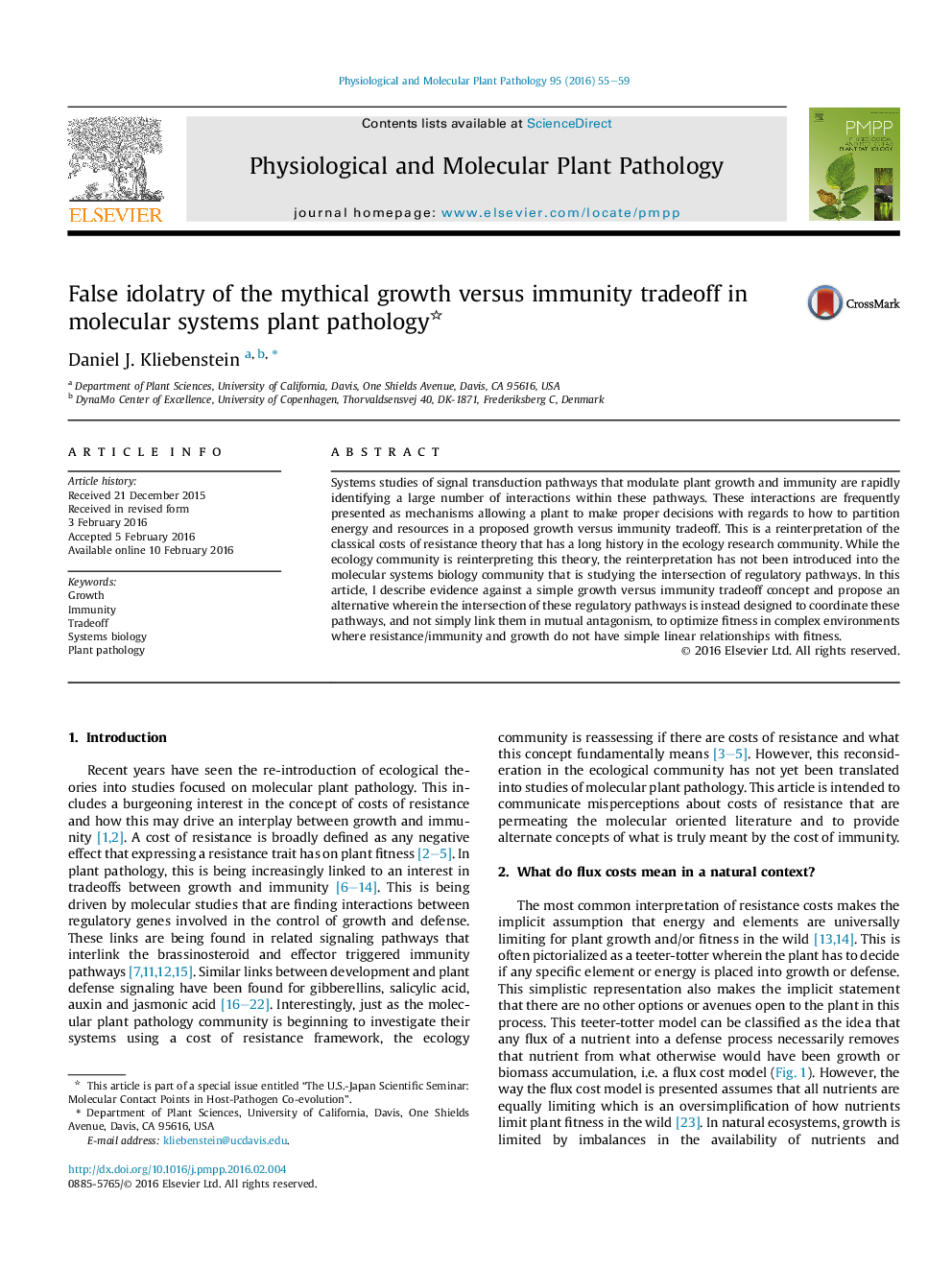| Article ID | Journal | Published Year | Pages | File Type |
|---|---|---|---|---|
| 2836179 | Physiological and Molecular Plant Pathology | 2016 | 5 Pages |
•Growth and Immunity are not in a zero sum game tradeoff with regards to fitness.•Resistance mechanisms can be essentially free to produce under certain nutrient conditions.•Resistance or Immunity costs are more likely to be driven by negative ecological interactions.•Growth and Immunity should instead be considered as working in collaboration to optimize fitness in a complex environment.
Systems studies of signal transduction pathways that modulate plant growth and immunity are rapidly identifying a large number of interactions within these pathways. These interactions are frequently presented as mechanisms allowing a plant to make proper decisions with regards to how to partition energy and resources in a proposed growth versus immunity tradeoff. This is a reinterpretation of the classical costs of resistance theory that has a long history in the ecology research community. While the ecology community is reinterpreting this theory, the reinterpretation has not been introduced into the molecular systems biology community that is studying the intersection of regulatory pathways. In this article, I describe evidence against a simple growth versus immunity tradeoff concept and propose an alternative wherein the intersection of these regulatory pathways is instead designed to coordinate these pathways, and not simply link them in mutual antagonism, to optimize fitness in complex environments where resistance/immunity and growth do not have simple linear relationships with fitness.
